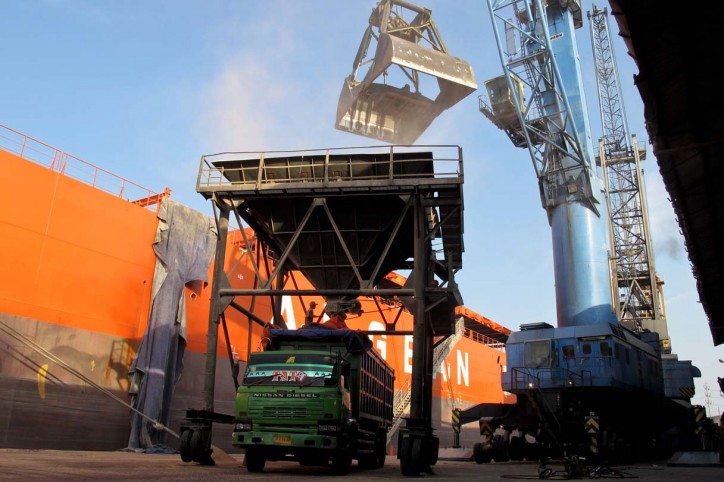PT Pelabuhan Indonesia III (Persero) or PT Pelindo III (Persero), which is an Indonesian state owned company engaged in transportation sector, inaugurated the Lamong Bay terminal in Surabaya (East Java), at the end of last week.
The Indonesian company operates its core business as a provider of port services facilities and the Lamong Bay will be the first green-concept container terminal in the country, which will increase the annual capacity of the port from 1.5 million to 3.5 million TEUs. The total capacity of the Lamong Bay facility is expected to reach 5.5 million TEUs when it becomes fully operational.

Image: Pelindo
The new container terminal is equipped with fully automated machinery including 20 Automated Stacking Cranes (ASCs), Remote Operating Stations (ROSs) and all the rest necessary container yard infrastructure delivered by Konecranes.
In addition to the container handling system, the Konecranes provided 10 Ship-to-Shore (STS) cranes and 5 straddle carriers.
Mr. Prasetyadi, the Pelindo III Project Manager, said:
”Lamong Bay Terminal is the next generation container terminal. Thanks to the reliability, productivity, predictability and safety provided by our Konecranes automated container handling system, we will provide our shipping line customers with uninterrupted, reliable container flow. This will be the key to build up business success in Indonesia and South-East Asia.”
The Indonesian state-owned terminal operator has a key role to ensure the sustainability and smoothness of sea freight through the vast local waterways.
In order to improve the movement of goods, the Indonesian government has introduced a nationwide freight transport program, which includes the Lamong Bay Terminal as one of the key projects, the construction of 170 seaports, mostly for pilot boat stopovers and construction of nine container carriers.
The new facility of the PT Pelindo III terminal operator gives the availability of adequate sea transportation infrastructure and in this way the company is able to drive and stimulate the country’s economy.